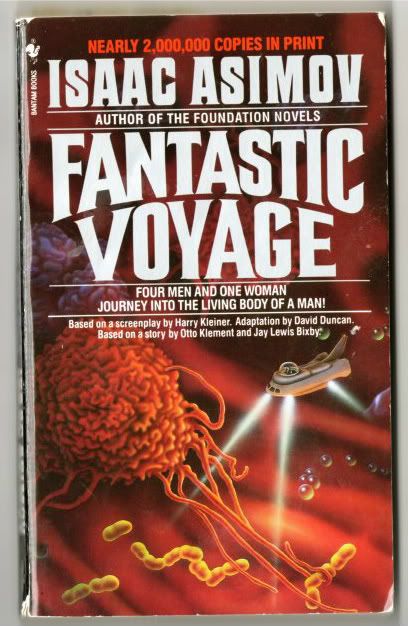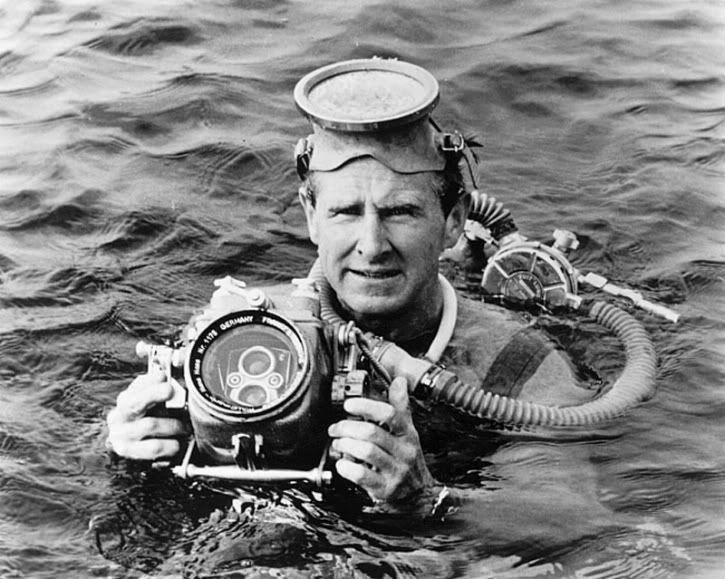
The novel "Fantastic Voyage" (1966) has many authors; it started as a story by Otto Klement and Jay Lewis Bixby (But, I don’t think this version was ever published). It was then adapted into a screenplay by Harry Kleiner. David Duncan is credited with “adaptation.” (I’m not even sure what that means he did). But the name I associate with the project is Isaac Asimov who wrote the novelization of the screenplay. At first, he didn’t want the job. In his autobiography “In Joy Still Felt,” he said, “I turned down the proposal out of hand. Hackwork, I said. Beneath my dignity.” However Asimov changed his tune. Maybe he decided it was a neat idea or maybe it was the $5,000 they offered to pay him. Who knows?
While reading the novel, I didn’t really even think about any of the others involved in the writing process, the whole thing seemed to be Asimov’s from start to finish. Which is exactly what the people behind the movie/novel wanted. They knew Asimov’s name would have cache in the science fiction field and that it would help legitimize the movie as science fiction rather than b-movie schlock. I mean look at Asimov’s name on my paperback, it is almost as big as the title while everyone else’s names are tiny.
The plot of the novel for those who aren’t familiar with it, is about a group of scientists with shrinking technology miniaturizing themselves and a submarine craft, so small that they travel along a man’s bloodstream like they were exploring the bottom of the ocean.
The figures given in the story were fascinating, they shrunk themselves so small that the human circulatory system was the equivalent of thousands and thousands of miles. Isn’t it crazy to think that your own body is that vast?
As the voyagers travel through the human body they find a new crisis at nearly every major organ. The beauty of the novel is that it is scientifically accurate as far as how the human body works and so it is educational while at the same time it’s an entertaining and exciting adventure story.
The weakness of the novel is that the dialogue between Grant (the hero) and Cora (the love interest) is very clunky, especially in the beginning of the novel.
I haven’t seen the 1966 movie, but maybe I’ll rent it sometime. For some reason I was convinced Lloyd Bridges was in the movie as Grant. As I was reading the novel I’d sometimes picture Lloyd saying the lines. But alas, he isn’t in the movie. I guess I was getting “Fantastic Voyage” mixed up with the TV show “Sea Hunt.”
Asimov was ultimately unsatisfied with the novel because he was stuck working off of someone else’s work when he felt it would have been better if he’d written it from the start and so he wrote a sequel to the first novel, “Fantastic Voyage II: Destination Brain.” It is the same plot of scientists miniaturizing themselves and going into a man’s body, but the novel is written by Asimov only. I haven’t read it yet, but I’d be interested to see how much different it could be and why it should exist at all other then to serve Asimov’s vanity.

Lloyd Bridges seen here on the TV show "Sea Hunt." I really wish he had played Grant in "Fantastic Voyage," but he didn't.
John, I saw the movie before I read the book. And given that the book was based on the movie, rather than the other way around,... well, I think it shows.
ReplyDeleteBut then, my experience with both was a long time ago.
Asimov hated the ending which many people pointed out violated their pseudo science of miniaturization.
ReplyDelete